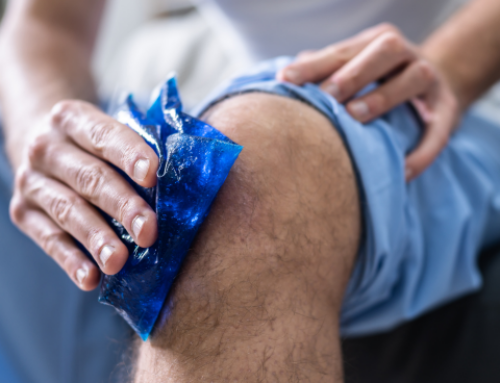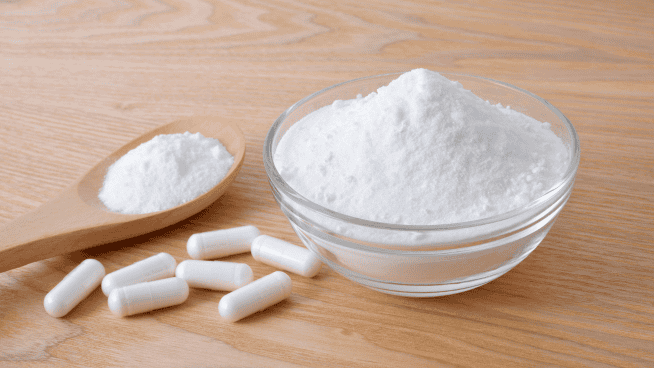Athlete Benchmarks: How Much Weight Should You Lift?
How much do you bench? This is probably the first thing you’ll get asked when you talk about working out.
But the million-dollar question is, how much weight should you be able to lift on the Bench Press—or any exercise for that matter? Many athletes can’t answer this question. They have no idea whether they’re strong on a lift or if they need serious improvement. They can only compare themselves to other people lifting next to them, which—let’s just say is not all that reliable.
Simply put, stronger athletes are more effective athletes. You need to have consistent strength across your entire body. This serves as the foundation for nearly every athletic movement—sprinting, jumping, battling with an opponent and performing your skills.
If you lack strength in one or more lifts, you probably have a strength deficiency that effects how you play on the field. For example, if your core is weak, an opponent can more easily knock you out of position. Or if your legs are weak, you won’t have the strength and power you need to quickly accelerate off the line.
That’s why it’s important to test your strength with exercises such as Squats and Deadlifts, to ensure that your strength measures up across the board. Below, Mark Roozen, owner of Coach Rozy Performance, who frequently travels to China to work with Chinese national teams, provides general recommendations for how much a high school junior or senior athlete should be able to lift.
You need to consider a few things when reviewing these guidelines from Coach Rozy:
-
The minimum strength number is the absolute least amount of weight or reps you should be able to perform on a lift. There’s still plenty of room for improvement, even beyond the elite level.
-
If you’re a young, developing athlete, don’t be intimidated by these numbers. Squatting twice your body weight might seem impossible at this point, but over time you will build the strength you need to crush these tests.
-
It’s OK if you fail a test. That identifies an opportunity for improvement. Problems arise only if a strength issue goes unaddressed.
-
You can only lift as much weight as possible with perfect form. Sometimes you can just muscle the weight up and down, compensating for strength and mobility issues. If your technique breaks down, lower the weight and try again without sacrificing form.
Back Squat
The Test: One-Rep Max Test
Minimum: A weight equivalent to your body weight
Elite: Twice your body weight
How to Get Stronger: 5 Ways to Improve Your Squat Strength
Deadlift
The Test: One-Rep Max Test
Minimum: 1.5 times your body weight
Elite: 2.5 times your body weight
How to Get Stronger: The Secret to Insane Deadlift Strength
Bench Press
The Test: One-Rep Max Test
Minimum: A weight equivalent to your body weight
Elite: 1.5 times your body weight
How to Get Stronger: Fix 7 Causes of a Weak Bench Press
Pull-Ups
The Test: Max Pull-Ups (from a full hang)
Minimum: 10 male / 5 female
Elite: 20 male / 10 female
How to Get Stronger: 3 Exercises To Help You Do More Pull-Ups
Push-Ups
The Test: Max Push-Ups in 60 seconds
Minimum: 20 male / 10 female
Elite: 50 male / 30 female
How to Get Stronger: Strengthen Your Upper-Body With Pyramid Push-Ups
Farmer’s Walks
The Test: Farmer’s Walk with Dumbbells for 10 Yards
Minimum: Total weight equivalent to 80 percent of your body weight
Elite: Total weight equivalent to your body weight
How to Get Stronger: Building Your Farmer’s Walk Strength
RECOMMENDED FOR YOU
MOST POPULAR
Athlete Benchmarks: How Much Weight Should You Lift?
How much do you bench? This is probably the first thing you’ll get asked when you talk about working out.
But the million-dollar question is, how much weight should you be able to lift on the Bench Press—or any exercise for that matter? Many athletes can’t answer this question. They have no idea whether they’re strong on a lift or if they need serious improvement. They can only compare themselves to other people lifting next to them, which—let’s just say is not all that reliable.
Simply put, stronger athletes are more effective athletes. You need to have consistent strength across your entire body. This serves as the foundation for nearly every athletic movement—sprinting, jumping, battling with an opponent and performing your skills.
If you lack strength in one or more lifts, you probably have a strength deficiency that effects how you play on the field. For example, if your core is weak, an opponent can more easily knock you out of position. Or if your legs are weak, you won’t have the strength and power you need to quickly accelerate off the line.
That’s why it’s important to test your strength with exercises such as Squats and Deadlifts, to ensure that your strength measures up across the board. Below, Mark Roozen, owner of Coach Rozy Performance, who frequently travels to China to work with Chinese national teams, provides general recommendations for how much a high school junior or senior athlete should be able to lift.
You need to consider a few things when reviewing these guidelines from Coach Rozy:
-
The minimum strength number is the absolute least amount of weight or reps you should be able to perform on a lift. There’s still plenty of room for improvement, even beyond the elite level.
-
If you’re a young, developing athlete, don’t be intimidated by these numbers. Squatting twice your body weight might seem impossible at this point, but over time you will build the strength you need to crush these tests.
-
It’s OK if you fail a test. That identifies an opportunity for improvement. Problems arise only if a strength issue goes unaddressed.
-
You can only lift as much weight as possible with perfect form. Sometimes you can just muscle the weight up and down, compensating for strength and mobility issues. If your technique breaks down, lower the weight and try again without sacrificing form.
Back Squat
The Test: One-Rep Max Test
Minimum: A weight equivalent to your body weight
Elite: Twice your body weight
How to Get Stronger: 5 Ways to Improve Your Squat Strength
Deadlift
The Test: One-Rep Max Test
Minimum: 1.5 times your body weight
Elite: 2.5 times your body weight
How to Get Stronger: The Secret to Insane Deadlift Strength
Bench Press
The Test: One-Rep Max Test
Minimum: A weight equivalent to your body weight
Elite: 1.5 times your body weight
How to Get Stronger: Fix 7 Causes of a Weak Bench Press
Pull-Ups
The Test: Max Pull-Ups (from a full hang)
Minimum: 10 male / 5 female
Elite: 20 male / 10 female
How to Get Stronger: 3 Exercises To Help You Do More Pull-Ups
Push-Ups
The Test: Max Push-Ups in 60 seconds
Minimum: 20 male / 10 female
Elite: 50 male / 30 female
How to Get Stronger: Strengthen Your Upper-Body With Pyramid Push-Ups
Farmer’s Walks
The Test: Farmer’s Walk with Dumbbells for 10 Yards
Minimum: Total weight equivalent to 80 percent of your body weight
Elite: Total weight equivalent to your body weight
How to Get Stronger: Building Your Farmer’s Walk Strength










